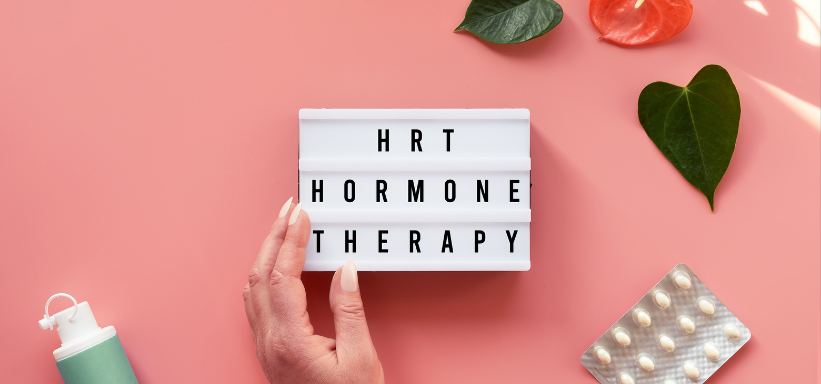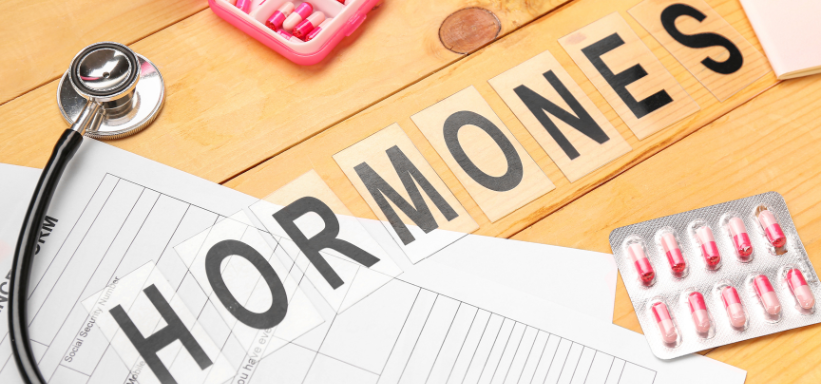Hormones and Mood: An Overlooked Link

Hormones regulate far more than just reproduction—they also play a critical role in mood, cognition, energy, and emotional balance. So when levels drop or fluctuate due to aging, menopause, or other factors, mental health often follows.
Hormone Replacement Therapy (HRT) is widely used to ease symptoms like hot flashes, night sweats, and low libido. But increasingly, it’s also being considered as part of the conversation around depression—especially in women experiencing perimenopause or menopause.
So, does HRT help or worsen depression? The answer depends on several factors, including hormone type, individual health, and timing.
Understanding Hormonal Shifts and Mental Health

Hormonal fluctuations—particularly in estrogen and progesterone—can significantly impact brain chemistry. Estrogen helps regulate neurotransmitters like serotonin and dopamine, both of which play key roles in mood regulation.
When estrogen levels decline (as they do in menopause or after certain surgeries), many people report:
- Low mood or sadness
- Anxiety or irritability
- Trouble sleeping
- Brain fog or forgetfulness
- Reduced motivation or energy
These symptoms can mimic or exacerbate clinical depression, making accurate diagnosis and treatment even more essential.
When HRT May Help Depression

Hormone Replacement Therapy may provide relief for depressive symptoms in specific cases—especially when hormone loss is clearly linked to the onset of mood changes. This is particularly true for:
- Perimenopausal and menopausal women
- Postpartum individuals with hormone-related depression
- Women with surgical menopause (e.g., hysterectomy with ovary removal)
Studies have shown that low-dose estrogen therapy can improve mood in some of these cases—especially when started early in the menopausal transition.
Important Note:
HRT is not a universal treatment for depression and should never replace antidepressants or therapy without medical supervision. It works best when part of a comprehensive care plan.
Types of HRT and Their Impact on Mood
There are different types of hormone therapies, and they don’t all work the same:
Typically prescribed for individuals who’ve had a hysterectomy. Estrogen therapy alone may have a more direct positive effect on mood and brain chemistry.
Used when the uterus is intact, this form may still improve mood but needs careful monitoring, as progesterone can have variable effects on emotional well-being.
These are chemically identical to the body’s natural hormones and may be better tolerated by some patients. However, more research is needed on their long-term mental health benefits.
Potential Risks and Considerations

While HRT can offer mood benefits, it’s not appropriate for everyone. Risks may include:
- Blood clots
- Stroke or heart disease (in certain populations)
- Breast cancer (especially with long-term combined therapy)
- Worsening of mood symptoms in some sensitive individuals
That’s why hormone therapy should always be customized and regularly reviewed by a qualified healthcare provider.
Who Should Avoid HRT for Depression?
HRT is not recommended as a first-line treatment for mood disorders in:
- Individuals with a history of hormone-sensitive cancers
- Those with unexplained vaginal bleeding
- People with clotting disorders
- Individuals already well-managed on psychiatric medications
If depression exists outside the context of hormone shifts, traditional treatments like therapy, medication, or integrative mental health support may be more appropriate.
What the Research Says
Clinical trials suggest that:
- Estrogen may reduce depressive symptoms during perimenopause
- HRT started early in menopause has greater cognitive and mood-related benefits
- Response varies widely, depending on personal history and hormonal profile
More research is underway to define the exact role HRT should play in mental health care—but the evidence is strong enough to warrant a conversation if you’re struggling.


Frequently Asked Questions (FAQs)
No. HRT may alleviate depressive symptoms related to hormonal shifts, but it is not a cure or substitute for mental health treatment in most cases.
Some individuals may experience mood dips on progesterone, while others feel no difference. Adjusting dosage or type may help.
Yes, testosterone therapy may improve mood in men with clinically low levels. However, it’s not used as a stand-alone depression treatment.
You can discuss combining HRT with your provider. Some find dual treatment more effective, especially during menopause.
Some patients feel better within a few weeks, but full benefits can take 2–3 months.
There is no conclusive evidence that bioidentical hormones are superior, but they may be better tolerated by some individuals.
Possibly. Starting HRT at the beginning of menopause may support mood stability, but this is still under investigation.
Yes. SSRIs, lifestyle changes, supplements, and ketamine therapy are all worth discussing with your provider.
Yes. Testing helps determine whether low hormones are contributing to your symptoms and ensures appropriate dosing.
Support for Body and Mind

Hormonal shifts can strongly affect emotional health—often in ways that feel confusing or disruptive. If you’re dealing with persistent low mood, anxiety, or emotional detachment, hormone changes may be playing a role. These fluctuations can impact sleep, stress response, and brain chemistry—contributing to symptoms of depression.
A thorough clinical evaluation can help determine if hormone replacement therapy (HRT) or another integrative approach is right for you. Effective treatment supports your whole well-being—especially during transitions like perimenopause or menopause. You don’t have to navigate this alone—help is available.





